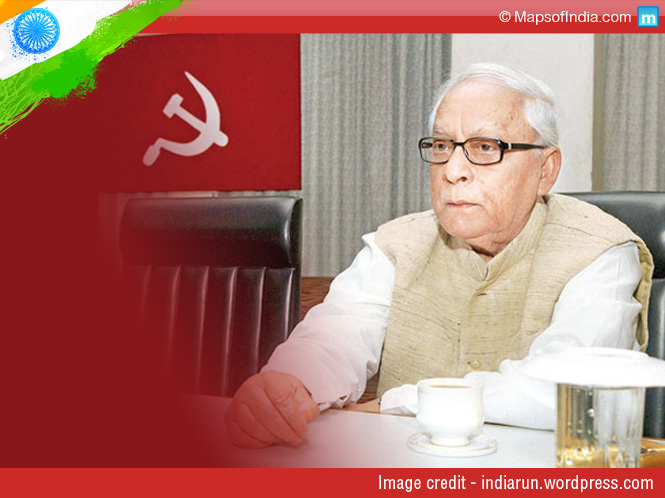
Brand Buddha, the pragmatic economic model started by ex-West Bengal Chief Minister Buddhadeb Bhattacharjee has finally got some vindication. According to National Sample survey (NSS) data, in the timespan of 2004-2011, Bengal created highest number of factory jobs even surpassing Narendra Modi’s Gujarat. This will be certainly a shot in the arm for Bengal CPIM, not only to fight TMC electorally, but also in their power struggle with central leadership.
Gujarat distant second
According to the report first published in The Hindu, between 2004-2011 nearly 59 lakhs new manufacturing jobs were created in India. In that 24.7 lakh jobs were generated in Bengal. Much hyped Gujarat lagged way behind with 14.9 lakh jobs. Tamil Nadu was in third place followed by Karnataka and Punjab. Significantly the state was reeling under political uncertainty for a significant period between 2004-2011. But data suggest that it didn’t have much effect on the industrialisation effort of the Left government.
Makeover of ideals
Buddhadeb Bhattacharjee took over reigns of the state after record stint of Jyoti Basu. While Left organisation was still hunky dory the state was reeling with lack of infrastructure and industry. The politician who is more of a poet by heart tried to change the situation. Aided with his Commerce Minister Nirupam Sen Buddha sought to shake the notion of Left parties being anti- business. He reached out to business tycoons to invest in Bengal. He tried to give them lucrative offer like to Tatas in Singur) to ensure that investment rolls in and employment is generated.
But sometimes even the best intentioned plans go haywire. Buddhadeb faced roadblock and upsurge of protest during land acquisition at Nandigram and Singur and the rest is history. Mamata Banerjee became C.M in 2011 ending the 34 years Left rule. Brand Buddha also had its untimely demise.
Party too rejected Buddha’s model
Like Chandrababu Naidu who created Cyberabad out of Hyderabad, Buddha too had to face defeat for his economic reforms. He could not convince the underclass, the peasants that Left still cares for them. Left was projected as party of land grabbers and they couldn’t counter the campaign. To that extent, Buddhadeb Bhattacharjee has to take the blame.
But what would have saddened him was when his own party decided to junk the economic model. The party went back in their policy of land acquisition. The leadership of Delhi lead by hardliners like Prakash Karat squarely blamed Buddha’s economic policy for the mighty defeat. Bengal CPIM though believed Left’s decision to pull out of the UPA over a theoretical issue like Indo-US nuclear deal was detrimental to its interest. It gave the party a bad name and also paved the way for alliance between Congress and Trinamool Congress which united the anti-Left votes. But this argument was not given any credence by the central leadership. Now this NSS data partly vindicates Buddhadeb.
Lesson for didi
Arguably, Mamata Banerjee’s heart is in the right place. She looks genuinely concerned about the welfare of the people of Bengal. But many believe TMC government hasn’t been able to attract sufficient amount of investment in the state. The blame often falls on the rigid land acquisition policy the government pursues.
Didi came to power riding on the issue of protecting farmer rights. Thus expectedly it is not easy for her to change policy with two years to go for Assembly elections. But political parties change, they fine tune their policies. Often pragmatism is the biggest dharma in electoral politics. Bengal has the power to surpass even mighty Gujarat. Didi may not publicise it but can take heart from the fact. As for Buddhadeb, he would hope that history judges him a bit more kindly than his contemporaries did.
Related Information:
Hyderabad Election Result
Gujarat Election Result
West Bengal Election Results
Karnataka Election Result
Punjab Election Result
Delhi Election Results
Election Results 2014





